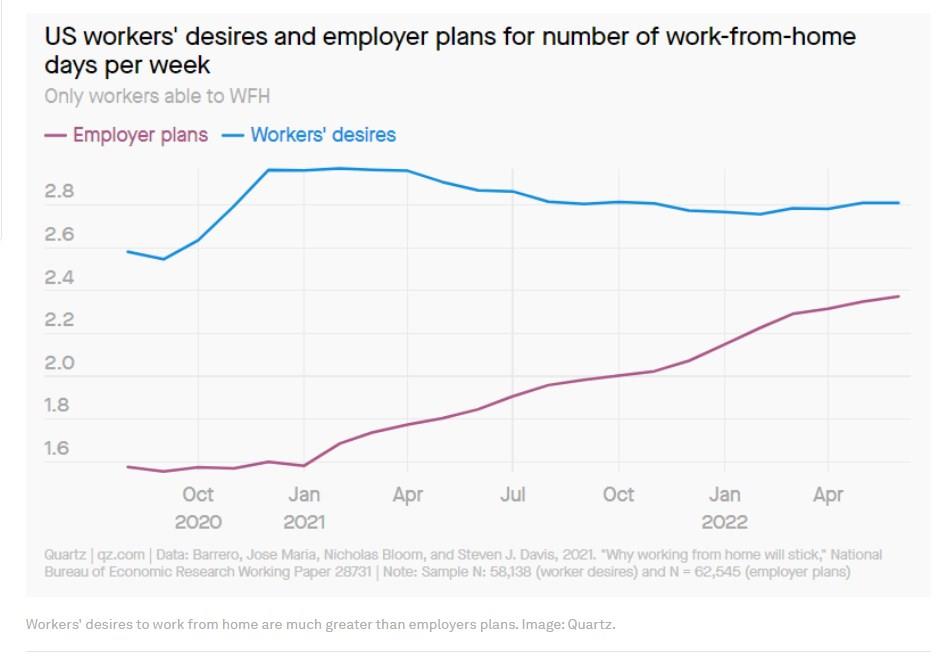by Michelle Cheng
More than two years after the start of the covid-19 pandemic, US workers are closer than ever to getting the remote-work arrangements they want.
In late 2020, the gap between how many work from home days workers wanted and how many remote days hybrid employers were planning was 1.38 days, according to a monthly online survey from WFH Research, a project that has been tracking workplace attitudes and worker arrangements each month since May 2020. By June 2022, that gap had narrowed to 0.44 days.
The difference is largely gone not because employees are wanting fewer remote days, but because employers are offering more of them, with the average number of days per week employees are invited to work from home rising from 1.58 days per week in January 2021 to 2.37 days per week in June 2022.
The narrowing gap signals that the US labor market remains tight, with workers feeling confident in making demands of their employers.
Work from home days: employer plans vs workers’ desires

Companies are continuing to experiment with work from home patterns, said Nicholas Bloom, an economist who helped conduct the study (and who has been working from home since 2004). Employers that increased the number of remote days did so out of concern for worker productivity and retention, he said.
But some employees feel there are too many remote days. For instance, Bloom says, many younger workers want to work from home no more than two or three days each week, perhaps because unlike their older counterparts, younger employees have yet to build up their social and professional networks.
What does the future hold for remote work?
The increased embrace—or tolerance—of remote work also comes as a potential recession looms. Will remote work trends withstand a downturn?
Slashing office spending is one way for employers to cut costs. But a recession typically brings about layoffs and higher unemployment, so management may gain the upper hand eventually.
*first published in: www.weforum.org




 By: N. Peter Kramer
By: N. Peter Kramer
